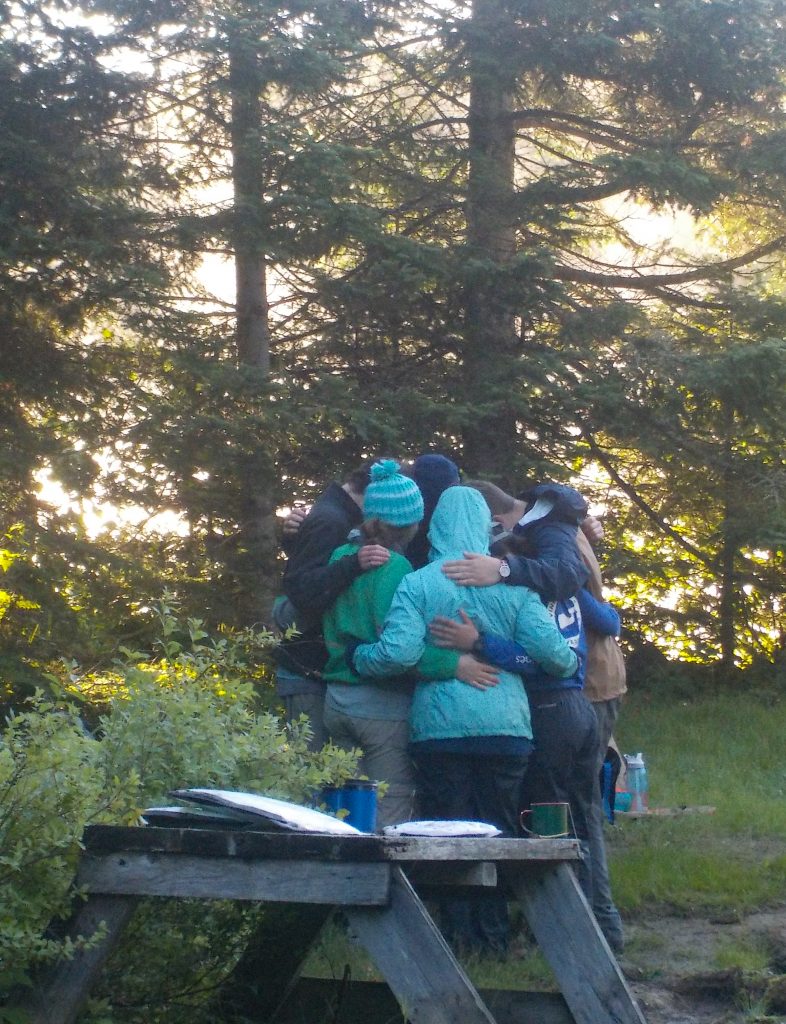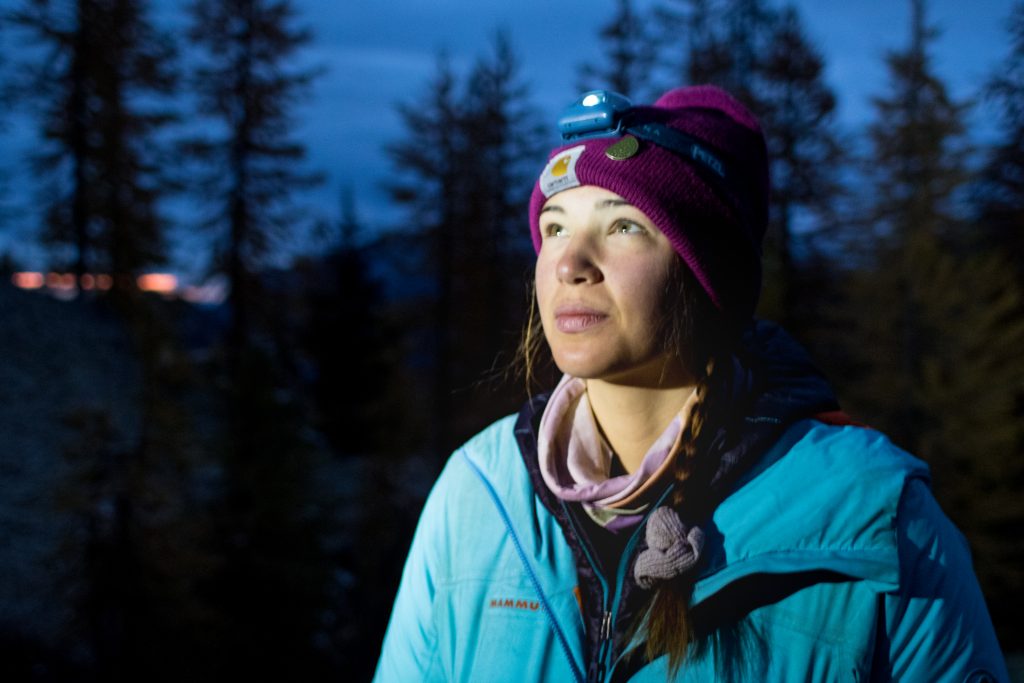The best advice I’ve ever received? “Make sure you’re not taking advice from the wrong people. Know who your cheerleaders are and go to them if you need help.” When I first heard this, it struck a chord. I felt like I’d been taking advice from the wrong people–including people I love–for a long time. After I embraced this piece of advice and the idea that I can still love someone and not follow their guidance, I began to own the choices I’ve made in my life. I learned to be proud of them instead of ashamed of them.

Once I embraced the idea that I can still love someone and not follow their guidance, I learned to be proud of my choices instead of ashamed of them.
Not All Advice Is Equal
Sometimes it pays to not listen to your roommate. Or to your Lyft driver. Or whoever is offering you counsel. If you need advice, take care in knowing who it’s coming from. Not all advice is equal, or even wanted, and it’s our responsibility to sort the good from the bad and identify which advice will help.
Before we seek advice though, there’s our story. And it’s one we often feel compelled to share.
Researcher Dr. Brené Brown studies shame and vulnerability and said the following about sharing your story with others: “If we share our shame story with the wrong person they can easily become one more piece of flying debris in an already dangerous storm. We want solid connection in a situation like this, something akin to a sturdy tree firmly planted in the ground.”
The desire to connect with others is at the center of Dr. Brown’s research. “You share with people who have earned the right to hear your story,” she advised in her Netflix special, The Call to Courage. “There are millions of cheap seats in the world today, filled with people who will never once…put themselves out there. But they will make it a full-time job to hurl criticism and judgment and really hateful things toward us, and we’ve got to get out of the habit of catching them and holding them close to our hearts.”
Dr. Brown has spent over a decade examining human connection through a lens of shame and vulnerability, where other things like trust, courage, creativity, joy and gratitude germinate. “Vulnerability is our most accurate way to measure courage and we literally do that as researchers. We can measure how brave you are by how vulnerable you’re willing to be,” Dr. Brown said. And finally, “You can’t take criticism and feedback from people who aren’t being brave with their lives.”

Share your story with people who have earned the right to hear it. Photo by Joe Reid.
When everything hits the fan and you need someone to talk to, Dr. Brown advises you to be careful when selecting your listener because you have a say in who listens. She advises to solicit feedback from the people who have historically given you good advice. “You know who makes that list? People who love you, not despite your vulnerability and imperfection but because of your vulnerability and imperfection. Their feedback matters.”
Sometimes We Don’t Need Advice
“Oh you poor thing.”
“Bless your heart.”
“How did you let this happen?”
“You’re exaggerating. It wasn’t that bad.”
“That’s nothing. Listen to what happened to me.”
These responses aren’t helpful or empathic ways to respond to someone’s story, according to Dr. Brown in her book The Gifts of Imperfection. Another mistake is giving unwarranted advice. Sometimes all we need is a listener, and all we want to hear is “This sucks.”

Sometimes we don’t need advice; all we need is someone to listen.
It’s a Practice
At Outward Bound, we focus on empowering students to be empathic leaders. An article in the Harvard Business Review talks about how giving and receiving advice is central to successful leadership and decision making, yet it’s something leaders often fail to practice. When it’s done well, people on both sides of the table benefit. “On both sides it requires emotional intelligence, self-awareness, restraint, diplomacy and patience,” authors David Garvin and Joshua Margolis wrote. Like gratitude, giving and seeking advice is a practice.
Seekers and advisers of advice work best when they do so collaboratively, while recognizing they’re approaching the issue from different vantage points. “Recent social psychology research shows that people in an advisory role focus on overarching purpose (why an action should be performed),” Garvin and Margolis wrote, “whereas recipients of advice—who usually face an impending decision—are more concerned with tactics (how to get things done). An individual is likely to think idealistically as an adviser, but pragmatically as a seeker, even when confronting the same challenge.” And sometimes it’s necessary to consult a second or third opinion.
Here’s some insight from a few Outward Bound staff based in Moab, Utah focusing on the best and worst general life advice they’ve received.
Ashton Danker, Logistics Coordinator
When it comes to your failures, nobody actually cares as much as you think. There’s two sides to this though: people may not care as much, but they’ll still form their opinions based off of what they see. Sometimes that gives me the power to just do it.
Lance Plank, Program Director
There are two pieces of advice that I consider the worst advice I’ve ever gotten. But I learned to take something away from it. Be open to the silver lining in advice that at first doesn’t speak to you. Find what works for you.
The first piece of advice was to tell more jokes and the other was to smile more. To the outside observer these may not sound that bad, but to me these are both cringeworthy. I’ve never been a person who has a list of jokes that I can rattle off whenever a moment arises. My humor has always been more about the moment and making light of a situation. As for smiling, maybe I should do that more, but I have no desire to have a non-genuine smile plastered on my face. As I reflect on these bits of advice I remember that there’s almost always a silver lining, a perspective that can help me to be the best self I can be. The takeaway I got from this advice is to strive to be genuine. Jokes and smiling are ways to build connections and interact with those around us. If specific ways to reach those connections don’t flow for you, there are many other ways to do so.
Arthur Shain, Course Director
If you aren’t learning anything new, move on. I like this because it challenges you to keep learning, but it also may make you pass over a good thing just because it isn’t a quantifiable learning or challenge. Sometimes you might want to do something that doesn’t challenge you, but if you follow that advice you should just move on.

Seekers and advisers of advice work best when they do so collaboratively, while recognizing they’re approaching the issue from different vantage points.
What’s the best or worst advice you’ve ever received, and what did you learn from it?
About the Author
Olivia Schneider is a Logistics Coordinator at the Colorado Outward Bound School in Moab, Utah where she was previously the media intern. She is an alumnae of the Voyageur Outward Bound School, Hurricane Island Outward Bound School and has volunteered for the Philadelphia Outward Bound School. She loves dance parties, tennis, unplanned nourishing conversations, and being on a boat.
OTHER POSTS YOU MAY LIKE
Read More
Read More
Read More




